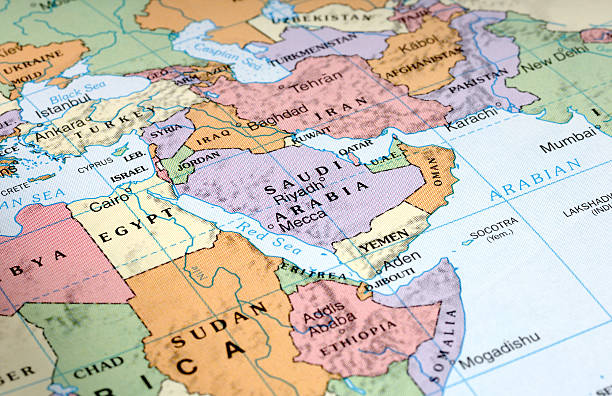The 30-page Brussels Summit Communiqué reiterated that NATO remains the foundation of its members’ collective defense and the essential forum for security consultations and decisions among them. It underlined the firm commitment to NATO’s founding Washington Treaty, including that an attack against one shall be considered an attack against all, as enshrined in Article 5. Among the shared values of the Allies, it mentioned individual liberty, human rights, democracy, and the rule of law.
As for the multifaceted threats, “systemic competition from “assertive and authoritarian powers”, and growing security challenges to allied countries, the Communiqué mentioned Russia’s aggressive actions constituting a threat to Euro-Atlantic security, terrorism in all its forms and manifestations, instability beyond NATO borders which contributes to irregular migration and human trafficking, and China’s growing influence and international policies that need to be addressed together, as an Alliance. And the leaders invited NATO’s Secretary General to lead the process to develop the Alliance’s updated Strategic Concept to be approved at their next meeting.
On June 16, at his last stop in Europe, President Biden had a meeting with President Putin in Geneva, one which is now likely to prove their last.
Less than a year later after the meeting, Russia invaded Ukraine. A month later, “For God’s sake, this man cannot remain in power,” President Biden said at the conclusion of his visit to Warsaw. NATO displayed what some called “unprecedented unity”. From the first day of the invasion American diplomacy engaged in an equally “unprecedented” effort to form an as broad as possible global coalition against Russia, probably skyrocketing the State Department’s travel expenses and telephone bills. Not an easy task given the global implications of the war for food and energy security…
This is what the New York Times reported last Saturday:
“Now, with the conflict in its fourth month, U.S. officials are facing the disappointing reality that the powerful coalition of nations — stretching from North America across Europe and into East Asia — may not be enough to break the looming stalemate in Ukraine.
“With growing urgency, the Biden administration is trying to coax or cajole countries perceived by Washington as neutral in the conflict — including India, Brazil, Israel, and the Gulf Arab states — to join the campaign of economic sanctions, military support and diplomatic pressure to further isolate Russia and bring a decisive end to the war. So far, few if any of them have been willing, despite their partnerships with the United States on other major security matters.” [i]
And this is what India’s External Affairs Minister S. Jaishankar recently said in an interview: “… Somewhere Europe has to grow out of the mindset that Europe’s problems are the world’s problems but world’s problems are not Europe’s problems…”
In brief, when NATO leaders meet in Madrid, at the end of the month, they will be faced with far greater foreign and security policy challenges than those they had to deal with in Brussels last year, among them Russia’s invasion of Ukraine, NATO expansion, the strengthening of NATO’s defense capabilities, energy and food security, and last but certainly not least, achieving a common understanding on China policy.
My summing up the last year’s Brussels summit was as follows: “President Biden got most of what he wanted from its allies and partners on Russia and China at the summit, but that did not necessarily mean that Washington and its European partners were united over the entire spectrum of relations with Moscow and Peking. Europeans remained more willing than the Biden administration to walk the extra mile towards cooperation.”
I still believe that ensuring unity on the broad outlook of the Alliance, through a balanced definition of the interests of the member states will be the Summit’s principal challenge.
Unless there is progress before the summit, it is clear that Türkiye would come under allied pressure in Madrid to withdraw its objections to Finland’s and Sweden’s bids to join NATO. Another issue for Ankara might be the growing interest across the Atlantic in “Black Sea security”.
On June 8, Scowcroft Center for Strategy and Security’s Transatlantic Security Initiative had a visual discussion on “Strengthening Black Sea security in a new era”. Among the participants were former Supreme Allied Commander Europe (SACEUR) and US National Security Advisor General James L. Jones (Ret.), and Ambassador Andrei Muraru of Romania to the United States.[ii]
General Jones, in his introductory remarks, called for a proactive allied policy in the Black Sea region which he called a crucial point of vulnerability. He said that the enhancement of NATO’s posture is good but not enough as underscored by Russia’s invasion of Georgia and Ukraine. He added that the threats to the region are complex and the hopes for achieving stability across the Euro-Atlantic area will be unachievable without securing the area. He called Romania a key ally and leader in calling for a more robust stance in the Black Sea region. He urged US and NATO policymakers to focus on the area for a strategic approach that fits today’s threats. He also said that the Strategic Concept can take time to evolve but this is the time for action. He was careful to avoid any mention of Turkey unless he had to.
Ambassador Muraru must have been targeting the US domestic audience. Referring to NATO’s Strategic Concept that is up for renewal, he said that NATO countries are the “good team” and the US is the “coach”. The members of the team, he went on, look at the coach to tell them that this is the strategic concept and “you do this, this, and this”. He must have delighted General Jones.
Neither General Jones, Ambassador Muraru, nor the other members of the panel referred to the Montreux Convention which has remained the pillar of Black Sea security since 1936.
As I underlined in an earlier post in March, the Montreux Convention has struck a balance between the interests of the Soviet Union and foreign powers. I said,
“Today, former USSR allies Bulgaria and Romania are members of NATO and the EU. Ukraine and Georgia are independent states. In other words, the picture has changed. Yet, the fundamental reality remains: The Montreux Convention diligently implemented by Turkey has prevented the Black Sea from becoming an area of military confrontation even in the darkest days of the Cold War. Many Black Sea coastal states may have chosen different paths for themselves. But they too would prefer the status quo to new tensions.
Ankara needs to remain alert to attempts to open Pandora’s box in the Black Sea.
_____________________________________________________________________________
[i] https://www.nytimes.com/2022/06/11/us/politics/russia-biden-sanctions.html?smid=em-share










